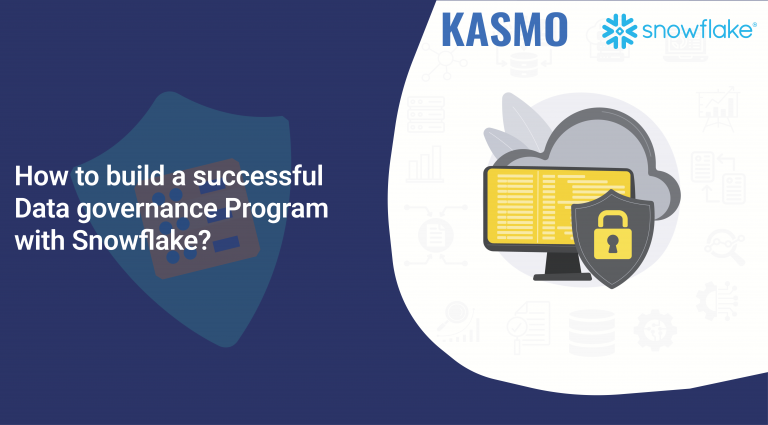In today’s digital age, data plays a vital role for businesses worldwide. It fuels decision-making processes, drives innovation, and enhances customer experiences. However, this invaluable asset also comes with significant responsibilities. Data Governance is the key to managing and safeguarding this precious resource, ensuring its quality, integrity, and security. Today organizations are dealing with large data but without proper governance. Data silos, inconsistent data and inadequate security measures are some problems associated with Data Governance. To overcome this issues Snowflake has announced the general availability of Data Governance in the Snowsight interface, which gives the best experience through an impulsive dashboard. With the new Data Governance experience in Snowsight, users can effortlessly explore objects of interest and perform essential actions. Whether assigning tags, implementing masking policies, or applying row access policies, the process is now easy and simple. The intuitive dashboard provides seamless navigation to desired databases and schemas, offering detailed reporting on tags and policies. The Data Governance Interface enhances your data management capabilities, empowering you to optimize your governance practices and safeguard the integrity of your valuable information.
Role of Data Governance in an Enterprise:
- Data Quality: Data Governance involves defining data standards and data validation rules. It also includes data profiling and cleansing processes. By implementing these practices, organizations can ensure that the data they rely on is accurate, consistent, and reliable. This, in turn, leads to more confident decision-making and prevents costly errors caused by inaccurate data.
- Compliance and Security: Data Governance is vital for ensuring compliance with Data Privacy and security regulations. Data Governance helps establish procedures and controls to protect sensitive information, reducing the risk of data breaches and legal penalties.
- Decision-Making: Data Governance ensures that data is accessible to those who need it when they require it. This timely access to high-quality data empowers executives and decision-makers to base their choices on accurate insights. It eliminates dependence on outdated or incomplete data, leading to more effective and informed decision-making.
- Data Collaboration: Many organizations suffer from data silos, where data is isolated within departments or teams. Data Governance encourages collaboration by creating a common framework for data management and sharing. When everyone in the organization speaks the same data language and follows established governance protocols, it becomes easier to break down these silos and stimulate cross-functional cooperation.
How Data Governance Help the Enterprises to Manage Compliance and Regulations?
- Increased Efficiency: Data Governance reduces the time and effort spent on data cleansing, troubleshooting, and reconciliation. When data is consistently high in quality, it can flow seamlessly through various processes, accelerating business operations and reducing operational costs.
- Risk Mitigation: Data breaches and compliance violations can have severe financial and reputational consequences. Data Governance helps identify weakness in data handling processes and puts controls in place to mitigate risks. This not only protects the organization from legal and financial liabilities but also safeguards its reputation.
- Improved Customer Trust: Customers are increasingly concerned about how their data is handled. Organizations that prioritize Data Governance and data privacy show their commitment to responsible data handling. This, in turn, builds trust with customers, who are more likely to engage with businesses that take data protection seriously.
- Innovation and Growth: High-quality data is a valuable resource for innovation and growth. Data Governance ensures that data is readily available for analytics, allowing organizations to identify new opportunities, market trends, and customer preferences. By leveraging data assets effectively, businesses can innovate and grow their market share.
Why does Data Governance Matter?
- Competitive Advantage: In a competitive era, businesses that effectively govern their data gain an edge. They can respond more quickly to market changes, adapt to customer demands, and seize emerging opportunities, giving them a competitive advantage.
- Customer-Centricity: Customers expect their data to be handled with care. Data Governance helps organizations maintain the privacy and security of customer information, which is crucial for building and maintaining strong customer relationships.
- Financial Savings: Data governance prevents costly data errors, such as inaccurate financial reporting or shipping the wrong products to customers. It also reduces the risk of data breaches, saving the organization from the considerable costs associated with data security incidents.
- Future-Proofing: As data volumes and complexities continue to grow, a well-established Data Governance framework prepares organizations for future challenges. It ensures that data remains an asset rather than becoming a liability, positioning the business for sustained success in an ever-evolving digital world.
Conclusion:
Kasmo, as a trusted Snowflake partner, plays an important role in assisting organizations to harness the full potential of their data. Kasmo has introduced its transformative Data Quality Solutions Accelerator, a catalyst for organizations aspiring to thrive in this dynamic landscape. The Data Quality Solutions Accelerator is designed to bridge the gap between data quality aspirations and tangible results. Through meticulous implementation of data quality standards, best practices, and governance frameworks, the Accelerator empowers organizations to make data-driven decisions with unshakeable confidence.
The Kasmo solution does not stop there. We assist the organisation to maintain a healthy culture of quality by building the Data Quality Centre of Excellence Team that serves as the guiding force that ensures data accuracy, consistency, and reliability across the organization’s operations. Kasmo empowers businesses to make informed decisions, drive efficiency, and unlock insights that fuel growth of the business by analyzing and managing data.
Get in touch with us today at sales@kasmo.co . To embark on a transformative journey, leveraging Snowflake to unlock the full potential of your data, share your details by clicking here.

